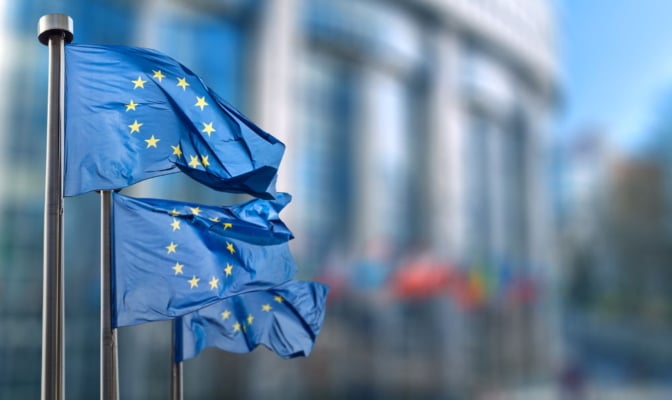European elections 2024, interviews with experts
Share on LinkedIn
In the run up the European Parliament election on June 9, 2024, H/Advisors Deekeling Arndt’s #EU24DAA series interviews industry-leading experts to explore how voters will shape the green, digital and security policy of the Union.
Part One: Dr Constanze Adolf, Managing Director at H/Advisors Deekeling Arndt
“In light of the transformations triggered by the crises of recent years, including climate change, the pandemic, and global and European conflicts, we want to shed light on the election and its possible implications.
“How the European Parliament will be composed is closely linked to the current mood in individual countries. In the upcoming election, substance and protest could dramatically clash, as it might focus less on content and more on sentiments and frustration. This contrasts, for example, with the significance of the Green Deal, which aims not only to implement climate protection but also to deliver energy and industrial policy competitiveness.
“Thus, the question arises whether credible signs of parliamentary dialogue and problem-solving capacity will be set or whether EU policy will be more strongly shaped by populist protest parties in the future. This will also determine the role that economic actors will play within the EU and whether the EU will continue to divide or grow closer, both internally and externally.
“Our consulting work highlights the growing significance for companies to adopt a distinct political stance in order to ensure the stability of their future economic strategies.”
Part Two: Dr Christian Ehler, Member of the European Parliament from the EPP Group
We are interested in finding out what his campaign priorities are and where he sees the greatest opportunities and challenges in the next five years. Furthermore, we’ve asked him what might motivate him to cast his vote for the first time, like young voters this year.
“After successfully tackling the issue of climate action in Europe, our focus must now be on securing competitiveness and jobs in our economy. We need to reignite courage and optimism in our society and unlock new economic opportunities with emerging technologies. Additionally, we must foster greater digital literacy at all levels and promote the use of AI in our businesses.
“Furthermore, we must fortify our democracy against external and internal threats and stand up for freedom and tolerance. A major challenge for the European Union is the rising tide of nationalist populism, which increasingly hinders communication, mutual listening, and societal willingness to compromise.
“Europe is challenged by conflicts at its borders and international tensions. Therefore, we must reaffirm the importance of our solidarity-based democratic community. Only united can the EU be economically and militarily resilient. Our shared democracy and social market economy foster innovation and economic development – this is Europe’s strength, which reinforces balance and cohesion within society.
“The European Union is a pact for peace. Being European guarantees younger generations all opportunities for free development. Fundamental freedoms and the protection of human dignity are cornerstones of the European Union. This stands in stark contrast to the restrictions experienced by people in other parts of the world even today. Every generation must stand up for these principles anew.”
Part Three: Klaus-Dieter Frankenberger, Non-Resident Senior Fellow at the American-German Institute in Washington and former Head of Foreign Policy at the Frankfurter Allgemeine Zeitung
Continuing our countdown to the EU elections, we are delighted to welcome today Klaus-Dieter Frankenberger, Non-Resident Senior Fellow at the American-German Institute in Washington and former Head of Foreign Policy at the Frankfurter Allgemeine Zeitung. He shares his political highlights and challenges of the last legislative period:
“My ‘highlight’ was the initiation of accession negotiations with Ukraine. This decision recognizes the importance of the Ukrainians’ resistance against Russian aggression for the security of the EU and its member states.
The conflict in Eastern Europe must be a focal point in the election campaign; it underscores the classic motif of the EU as a peace project: peace internally, defence against external threats. In addition, cohesion and the rule of law, the fight against nationalism and division, should be at the center. It is to be emphasized that only a strong Europe can defend its interests and values in a world that has fallen out of balance.
Europe’s strengths lie in its democratic, liberal, and constitutional structure. Its societal order provides individual protection, offers participation, and creates prospects for prosperity and progress. The union, if used and expanded correctly and consistently, is a significant geopolitical resource. The greatest opportunities lie in the field of technology, energy and climate policy transformation, and in completing the internal market. Internationally, opportunities arise when our own interests and values are perceived in alignment with recognition of geopolitical realities and circumstances.”
Regarding the communication deficit between European decision-makers and EU citizens, Mr. Frankenberger has a clear opinion:
“National (and subnational) actors must stop vilifying the EU because and when it is politically expedient for them. Such opportunism contributes to the delegitimization of the EU. Decision-makers at the EU level, on the other hand, should not perceive criticism as blasphemy; it is legitimate – as long as it is not driven by hatred. All levels should strive to explain the complex mechanics of the EU decision-making system in an understandable way. Without citizen acceptance, the risk of delegitimization and denunciation increases.”


